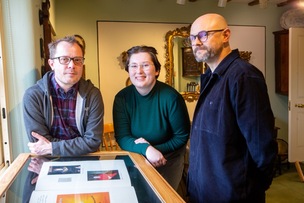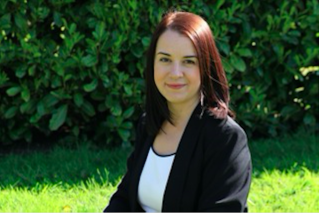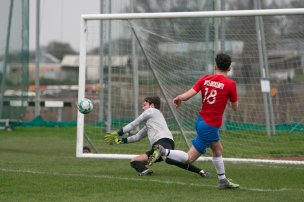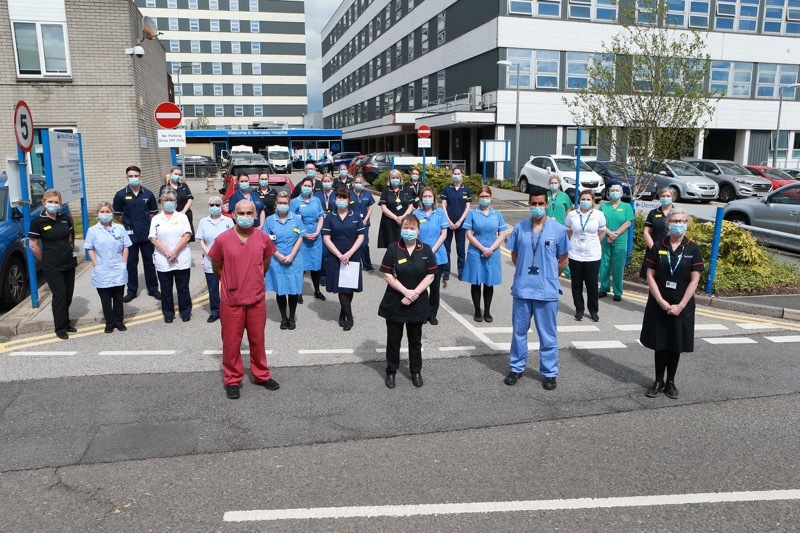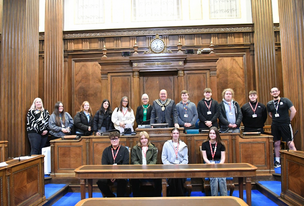THERE is ‘absolutely no doubt’ that frontline staff at Barnsley Hospital should be considered heroes for their response to coronavirus, the Chronicle was told on an exclusive first visit since the outbreak.
Bosses, keeping their eyes and ears to mounting national and international news reports, began planning as early as January before the ‘Covid ward’ - on the Gawber Road building’s top floor, in the Acorn Unit previously used for care of the elderly - was established in March.
The scene came to resemble as close to ‘what we could possibly imagine a warzone being like’, said intensive care consultant Dr Sughrat Siddiqui.
Staff would move intensive care and respiratory units - which can take months - across the hospital in a matter of days, while operating department practitioners developed a mobile and disposable intubation kit that was replicated at hospitals around the country and dubbed the ‘Barnsley bag’.
The accident and emergency department was separated into ‘hot’ and ‘cold’ areas for those with and without symptoms, while respiratory beds more than doubled from 23 to 53.
“It was like a military operation, everything was planned but the plans were being made every day, hour-by-hour,” said 47-year-old Dr Siddiqui, whose entire ten-year career has been at Barnsley.
“The frequency of nights and weekends was doubling and tripling, and staff just did it.
“It’s not just how ill the patients were, but the number of them coming in the door, and so quickly.
“The response the trust as a whole made to that was incredible, in how quickly it occurred.”
If the response resembled a military operation, Dr Siddiqui’s ‘warzone’ analogy follows through to the death and despair many would see on a daily basis.
More than 800 people in Barnsley have died within 28 days of a positive Covid test, and just a few weeks ago the borough recorded the highest rate of cases per 100,000 residents in the country, as more than 5,000 caught the virus in the first three months of this year.
At what was thought to be the virus’ first peak, last April, there were 78.
On October 23, daily numbers of beds occupied by Covid patients surpassed that figure and wouldn’t fall below it consistently until February 26 - at the true height of the pandemic, 174 patients were counted in one day in November.
Respiratory consultant Dr Salim Meghjee, 53, moved to Barnsley in December 2019 after two decades at Pinderfields in Wakefield.
His department and the intensive care unit (ICU) were placed side-by-side to allow for better working.
He said: “At some points, we’d have seven beds in the unit and in a day we’d see two or three deaths.
“We had to speak to the family over the phone.
“To top that off, nurses were doing 12-hour shifts, one after the other, so they’d come in and see a few deaths, come in the next day and see the same.”
Routine surgeries were cancelled as theatre staff, alongside others, were asked to chip in on the ICU.
Theatre, day surgery and recovery manager Simon Rowe, 56, added: “We had some theatre staff that went up on the first wave, and had to have counselling because of what they’d seen - they’re not used to patients dying - but then went back for the second wave.
“We had two weeks to train staff to take ICU patients.
“Particularly in theatres, we had to do a completely alien role, working with staff we weren’t familiar with in a job that is scary.
“People were dying in front of their eyes.
“I’ve been a manager for 20 years and you take each other for granted, but I really did see a lot of heroes.”
Dr Siddiqui added: “That word gets thrown around far too much - but there’s absolutely no doubt that a lot of staff who work in this hospital are heroes.”


